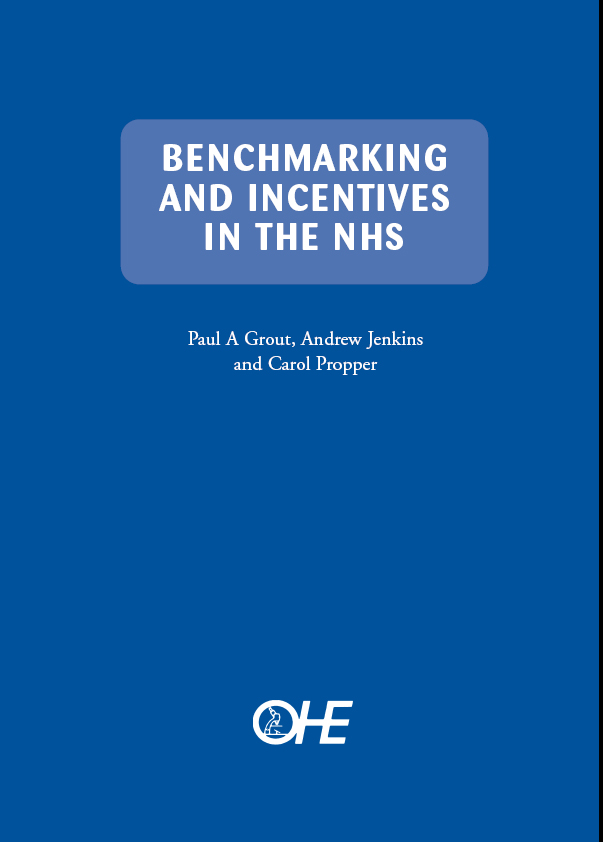Unlocking the Value of Combination Therapies

This paper examines general issues in the use of benchmarking as a measure of comparative performance, reviews the application of benchmarking in the public and private sectors, and then examines the application of benchmarking in the UK National Health Service (NHS). A key…
This paper examines general issues in the use of benchmarking as a measure of comparative performance, reviews the application of benchmarking in the public and private sectors, and then examines the application of benchmarking in the UK National Health Service (NHS). A key issue of concern is whether there should be a link between benchmarks and explicit financial rewards, and the implications for the form of the benchmark if such links are made.
Our main conclusions are:
● There are strong arguments for the use of high-powered incentives attached to benchmarks in the NHS.
● In the light of experience in utilities we suggest that there is a danger of waiting for an ideal system. Introducing less aggressive high-powered incentive structures quickly is the best way forward.
● Further statistical modelling in the NHS is needed to isolate the impact on cost and quality of factors under the control of decision-makers. Compared to utilities there are many more data points in NHS activities so modelling should prove fruitful.
● The greatest difficulty for the use of high-powered incentives arises from the asymmetry in measuring the different tasks that organisations and individuals in the NHS are required to do. A combination of high-powered incentives and asymmetry of measurement can distort effort away from tasks that are harder to measure. For this reason, even in the very long run, incentives will almost inevitably be less high-powered for many NHS activities than elsewhere in the public and private sectors. To ignore this trade-off and push ‘too hard’ may have damaging side effects.
● The conveyance of information about objectives and mission is an inevitable consequence of a benchmarking regime. There needs to be rapid movement towards measures of quality adjusted for case mix (e.g. risk adjusted mortality outcomes). Failure to do this would convey the signal that the NHS is primarily interested in providing a cheap service rather than in providing a quality service at value for money.
● The number of benchmarks faced by any part of the NHS needs to be limited. The use of many benchmarks for each NHS organisation creates the impression that the centre doesn’t know what its mission is. This is at best confusing, but worse may lead to individuals reducing total effort. Successful agencies pursue narrow and clear missions. This suggests a limited number of benchmarks should be set for each type of organisation within the NHS, with different benchmarks set for different organisations.
● Systems take time to bed down so once in place should not be subject to continuous change.
Benchmarking and Incentives in the NHS
Grout, P., Jenkins, A. and Propper, C.
(2000) Benchmarking and Incentives in the NHS. OHE Monograph. Available from https://www.ohe.org/publications/benchmarking-and-incentives-nhs/